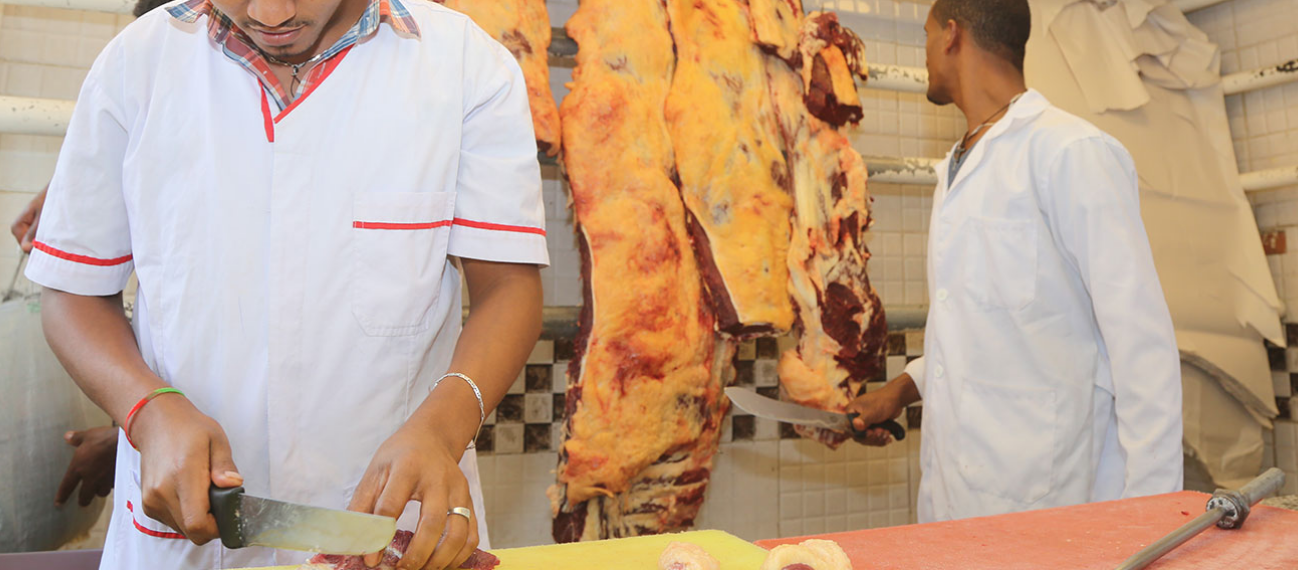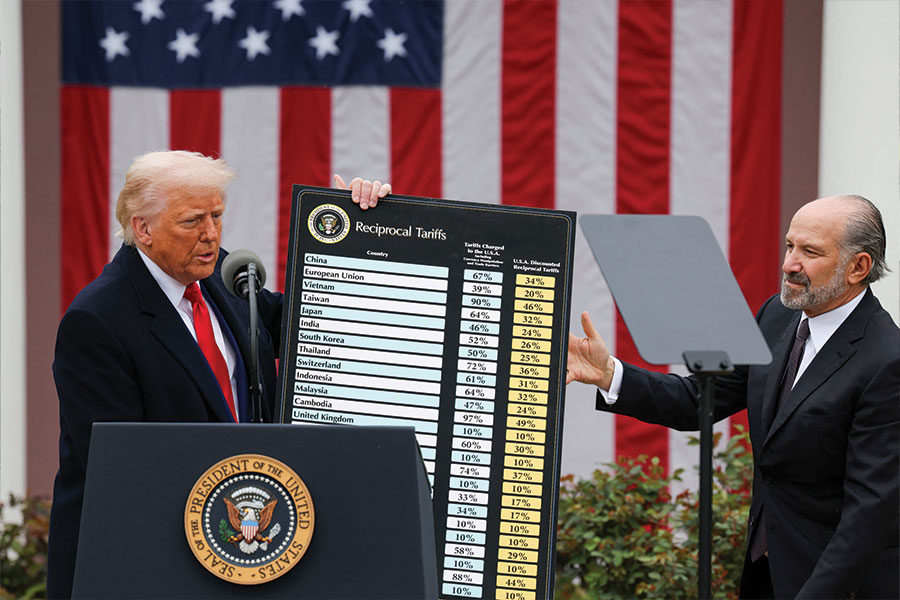
Viewpoints | May 11,2019
Nov 16 , 2019
By Dia Sanou
Recent data from the State of Food Security and Nutrition in the World suggest that after decades of steady decline, hunger has slowly increased in the world. According to this report, more than 820 million people in the world were still hungry in 2018 and over two billion people do not have regular access to safe, nutritious and sufficient food. East Africa remains by far the most affected region, with 271.7 million people representing about 63pc of the population in 2018.
High levels of malnutrition expose children to both immediate and long-term problems such as stunted physical growth, lower intelligence quotient (IQ) and poor school performance. Malnutrition also increases the risk of health conditions in adulthood including diabetes, coronary heart disease and stroke.
Further, economic costs due to malnutrition will undermine East Africa’s efforts to reduce poverty, thus impeding the speed and quality of development. For example, studies have shown that African countries lose annually up to 16pc of their GDP due to child malnutrition.
The drivers of food insecurity and malnutrition call for decisive and urgent actions. The causes of food insecurity and malnutrition are complex and multifaceted. Reports from the Food & Agriculture Organization of the United Nations (FAO) suggest that poor policy environment and governance frameworks coupled with weak implementation capacities are major factors that derailed progress. Furthermore, poverty and economic slowdowns are important drivers. Climate change, conflicts and insecurity are exacerbating food insecurity and malnutrition.
The high burden of malnutrition in East Africa requires decisive and urgent actions, including the development and effective implementation of regional and national laws, policies, strategies, plans and programmes.
The role of parliamentarians in advancing food security and nutrition is of vital importance. Members of parliament can ensure that enabling legislative and policy frameworks for food security and nutrition actions are formulated and enacted. They also bear the responsibility for the allocation of national budgets to implement programmes that address challenges that hamper the progress in the areas of food security and nutrition. MPs can also hold governments accountable for policy implementation and commitments made at global and regional levels. MPs can advocate for more funding and shape development policies that prioritise food security and nutrition. Moreover, they can use their position as respected opinion leaders to educate constituents on healthy dietary behaviours.
Partnerships with MPs are crucial. Acknowledging the critical role MPs can play in advancing the food security and nutrition agenda, FAO is working closely with national and regional parliaments to support member states in East Africa in their fight against hunger and malnutrition. This is in support of the African Union’s aspirations to end hunger by 2025, as stated in the 2014 Malabo Declaration, as well as the United Nations' Sustainable Development Goal 2, which targets ending hunger and malnutrition by 2030.
As part of its vision for Africa, the FAO Subregional Office for Eastern Africa is supporting the formation and operationalisation of regional and national parliamentary alliances across East Africa, providing technical support and capacity building to MPs on food security and nutrition issues. It is in this regard that the Eastern Africa Parliamentary Alliances for Food Security & Nutrition (EAPA - FSN) was established to serve as a platform for knowledge sharing among MPs and of advocacy on FSN issues. The Alliance comprises MPs from Burundi, Djibouti, Eritrea, Ethiopia, Kenya, Rwanda, Somalia, South Sudan, Tanzania, Uganda, East Africa Legislative Assembly and the Inter-parliamentary Union of the Inter-Governmental Authority on Development (IGAD). Members of EAPA are working with stakeholders such as the Africa Union, IGAD and the East African Community to increase political commitment and budget allocation for agriculture and food security while raising awareness in their respective constituencies.
PUBLISHED ON
Nov 16,2019 [ VOL
20 , NO
1020]


Viewpoints | May 11,2019

Radar | Jun 17,2023

Radar | Oct 07,2023

My Opinion | Jul 13,2024

Advertorials | May 27,2024

Commentaries | Mar 01,2024

Commentaries | May 03,2025

Fortune News | Sep 24,2018

Commentaries | Sep 07,2019

Viewpoints | Aug 10,2025

Photo Gallery | 174706 Views | May 06,2019

Photo Gallery | 164926 Views | Apr 26,2019

Photo Gallery | 155159 Views | Oct 06,2021

My Opinion | 136717 Views | Aug 14,2021
Editorial | Oct 11,2025

Dec 22 , 2024 . By TIZITA SHEWAFERAW
Charged with transforming colossal state-owned enterprises into modern and competitiv...

Aug 18 , 2024 . By AKSAH ITALO
Although predictable Yonas Zerihun's job in the ride-hailing service is not immune to...

Jul 28 , 2024 . By TIZITA SHEWAFERAW
Unhabitual, perhaps too many, Samuel Gebreyohannes, 38, used to occasionally enjoy a couple of beers at breakfast. However, he recently swit...

Jul 13 , 2024 . By AKSAH ITALO
Investors who rely on tractors, trucks, and field vehicles for commuting, transporting commodities, and f...

Oct 11 , 2025
Ladislas Farago, a roving Associated Press (AP) correspondent, arrived in Ethiopia in...

Oct 4 , 2025
Eyob Tekalegn (PhD) had been in the Governor's chair for only weeks when, on Septembe...

Sep 27 , 2025
Four years into an experiment with “shock therapy” in education, the national moo...

Sep 20 , 2025
Getachew Reda's return to the national stage was always going to stir attention. Once...

Oct 12 , 2025
Tomato prices in Addis Abeba have surged to unprecedented levels, with retail stands charging between 85 Br and 140 Br a kilo, nearly triple...

Oct 12 , 2025 . By BEZAWIT HULUAGER
A sweeping change in the vehicle licensing system has tilted the scales in favour of electric vehicle (EV...

A simmering dispute between the legal profession and the federal government is nearing a breaking point,...

Oct 12 , 2025 . By NAHOM AYELE
A violent storm that ripped through the flower belt of Bishoftu (Debreziet), 45Km east of the capital, in...